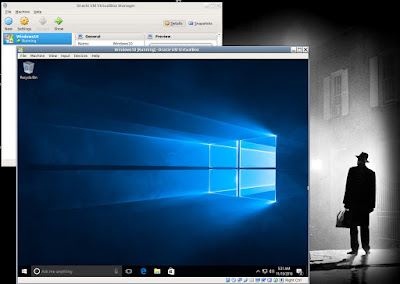This is where I was at last time I wrote about it this: Writing in the cloud: A free solution for long manuscripts >
Things I've learned since then:
- The MS Word editor built into Dropbox is outstanding. It's the result of a partnership between Dropbox and Microsoft and the cooperation shows, but I was having trouble editing Word docs. This is the error I was getting:
- Solution: Discovered this by just opening the problem doc in the full Word installation on Windows 10 and saving in different formats until I found one that worked in the Dropbox web editor. The format that worked? "Strict Open XML Document":
- (Strict Open XML is still a docx file, but doesn't include some Word-only formatting that as I understand contains legacy bits from older Word formats.)
WPS Writer Update
- WPS Writer for Linux is crashing when trying to open any Word doc.
- WPS Writer for Windows doesn’t seem to support Strict Open XML. At least, I can’t get it to work. (Odd that Linux and Windows versions of WPS Writer would start acting up on me at the same time; the Linux version hasn’t updated and isn’t on the same release schedule; in fact, it isn’t on any published schedule that I’m aware of.)
- Epic Fail: Discovered a need WPS doesn't meet: You can't reorder sections from the document navigator pane. Now, you can't do that with Dropbox's (or Microsoft' OneDrive) web editor, either, but when you need it, it's critical, so I had to work with the a full MS Word installation on Windows.
LibreOffice Update
LibreOffice 5 opens Strict Open XML just fine, and it allows you (though rather inelegantly) to reorder sections. It doesn’t, however, preserve images that are saved with Word in Strict Open XML format.
Why not use Google Drive? (which I like)
- Not sure I trust its built-in web editor for Word docs.
- Doesn't play on Linux.
- Doesn't play nice with Windows 10.
Where am I at today?
- Since I had to reinstall a full version of Word on Windows 10 to solve my Dropbox issue and reorder sections, I'm still using it.
- When I’m not using my Word computer at home, I use Dropox's Word editor.
- I’ll keep an eye on WPS, but I don’t have the time to figure which of the dozens of moving parts is causing the problem.
2016.10.21
c0
*** UPDATE ***
- Performance while editing long docs in the cloud (DropBox, OneDrive and Google) is really finicky. Can vary from adequate to unusable, whether I’m at McDonald’s or plugged into my router. There are so many factors influencing this, there's no way I can make cloud editing 100% reliable.
So...
- For home: a) Windows with full Word install and DropBox, and b) Windows 10 in a virtual machine on Oracle VirtualBox. This gives me access to Word and Windows on Linux. Not ideal, but no performance issues with my apps, and running Windows in a window is somehow ironically satisfying.
- Want to try it? It’s free and easy (and fun). Complete instructions are here: https://www.pcsteps.com/184-install-virtualbox-linux-mint-ubuntu/
- Away from home: Windows with full Word install and DropBox
- Using only Strict Open XML regardless.
2016.11.19
c0








